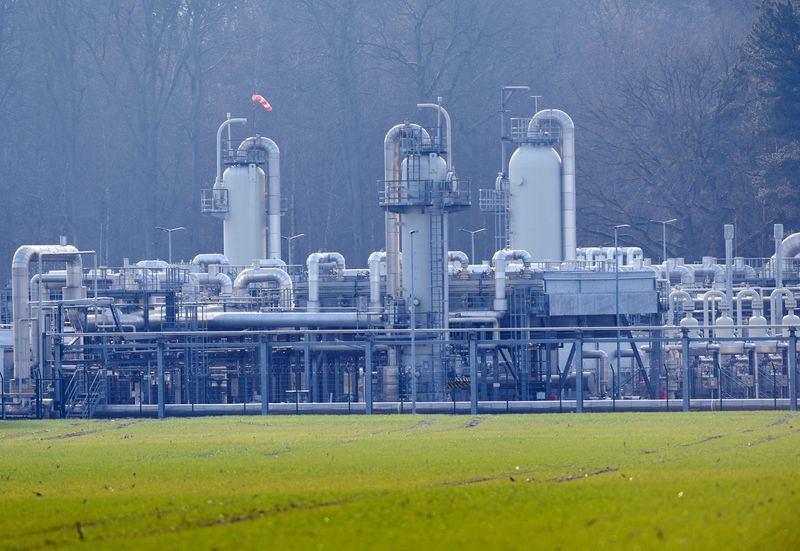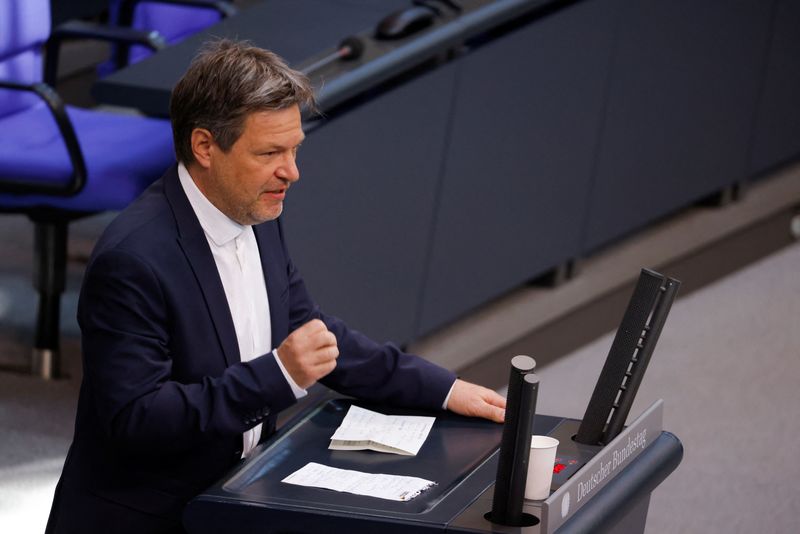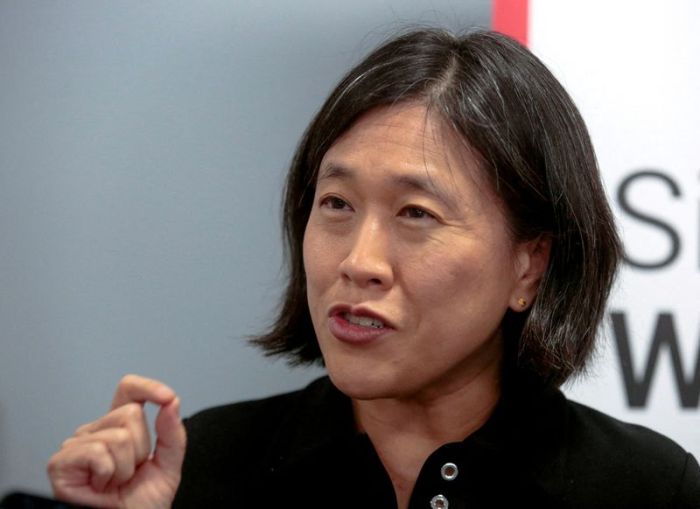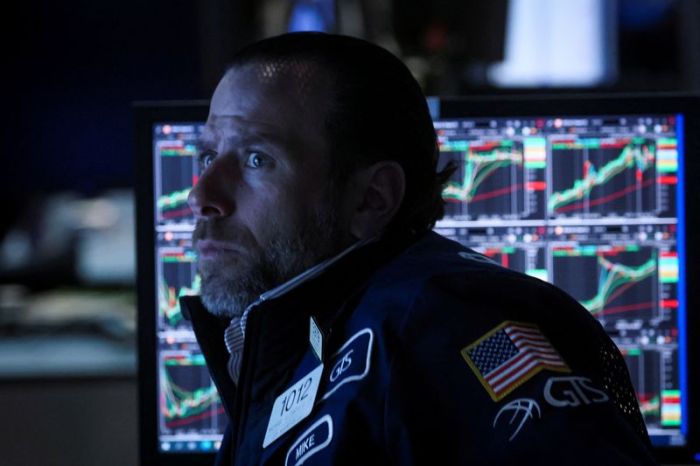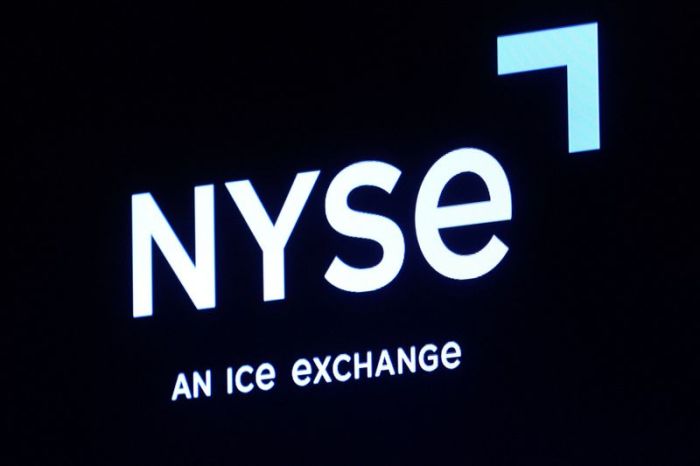BERLIN/FRANKFURT (Reuters) -Germany triggered an emergency plan to manage gas supplies on Wednesday that could see Europe’s largest economy ration power if a standoff over a Russian demand to pay for fuel with roubles disrupts or halts supplies.
Moscow’s insistence on rouble payments for the Russian gas that meets a third of Europe’s annual energy needs has galvanised others in Europe: Greece called an emergency meeting of suppliers, the Dutch government said it would urge consumers to use less gas and the French energy regulator told consumers not to panic.
The demand for roubles, which has been rejected by Group of Seven nations, is in retaliation for crippling Western sanctions on Russia following its invasion of Ukraine.
Moscow, which says it is conducting a “special military operation” there, calls Western measures an “economic war”.
Russia’s most senior lawmaker said on Wednesday Russia could demand rouble payments also for other commodities including oil, grain, fertilisers, coal and metals, raising the risk of recession in Europe and the United States.
Moscow is expected to make public its plans for rouble payments on Thursday, although it said it would not immediately demand that buyers pay for gas exports in the currency.
Russian President Vladimir Putin and German Chancellor Olaf Scholz have agreed in a call that experts from their countries would discuss how payment for Russian gas exports could be made in roubles, the TASS news agency reported.
Separately, Putin outlined the rouble plan in a phone call with Italian Prime Minister Mario Draghi, Draghi’s office said.
Two Russian sources told Reuters as one of the options for the switch, Russia planned to keep contract prices for gas exported to “unfriendly” countries but demand the payment to be done in the rouble equivalent on a pre-agreed settlement day.
Western countries have said payment in roubles would breach contracts that can take months or more to renegotiate, a prospect that has driven commodity prices higher.
It would also blunt the impact of Western curbs on Moscow’s access to its foreign exchange reserves and bolster its currency.
The European Union is preparing more sanctions against the Kremlin, EU sources told Reuters on Wednesday, with their scope depending on Moscow’s stance on gas payments in roubles.
INDUSTRY FIRST IN LINE FOR CUTS
Berlin’s unprecedented move is the clearest sign yet that the European Union is preparing for Moscow to cut gas supplies unless it gets payment in roubles. Italy and Latvia have already activated warnings.
German Economy Minister Robert Habeck implemented the “early warning phase” of an existing gas emergency plan, where a crisis team from the economics ministry, the regulator and the private sector will monitor imports and storage.
Habeck told reporters Germany’s gas supplies were guaranteed for now but urged consumers and companies to reduce consumption, saying that “every kilowatt hour counts”.
If supplies fall short, Germany’s network regulator can ration gas, with industry first in line for cuts and preferential treatment for private households, hospitals and other critical institutions.
Even without the threat of gas shortages, Germany could face recession as climbing energy costs have already forced companies, including makers of steel and chemicals, to curtail production.
German industry association BDI on Wednesday asked for government support, including loans and state participations, to prevent firms from going bust, while government’s economic advisers slashed this year’s growth forecast because of the Ukraine crisis. {nL2N2VX1PL]
Half of Germany’s 41.5 million households use natural gas for heating while industry account for roughly a third of national demand. Russia is Germany’s top gas supplier, accounting for 40% of imports in the first quarter of 2022. Berlin has pledged to end its energy dependency on Moscow but it will not achieve that before mid-2024, according to Habeck.
Europe faced an energy crunch even before Russian troops entered Ukraine on Feb. 24, with European Union gas storage levels at about 26% of total capacity, below normal levels at this time of year.
The European Commission, which said on Wednesday it would work closely with member states to prepare for any gas shortages, has proposed legislation requiring countries to fill levels to at least 80% by November but that would be almost impossible without Russian supplies.
The 80% target would not apply if the European Commission declared an EU-wide or regional gas supply emergency – which it can do if at least two countries declare an emergency first.
‘EVERYTHING WILL BE FINE’
Jean-François Carenco, head of the energy regulator in France, far less dependent on Russian gas than Germany, thanks to gas and liquefied natural gas sourced elsewhere and its reliance on nuclear power plants, r power generation, said the country should not encounter any supply issues.
“Everything will be fine, the gas storage facilities are well filled, we’ll make it through the winter,” he told BFM TV.
Greece was set to hold an emergency meeting of its energy regulator, gas transmission operator and its biggest gas and power suppliers on Wednesday to assess its supply security in case Russia stops supplies.
The Dutch government said it would launch a campaign to get consumers to use less gas.
Investors are watching to see how the dispute over Russia’s insistence on rouble payments plays out as consumers in Europe grapple with energy prices that have forced governments to announce fiscal relief measures.
This month has been the most expensive month for power prices in European history, although markets are set to end the month at lower levels than at the start of March.
After Germany’s announcement, German year-ahead wholesale electricity set a three-week high of 185 euros per megawatt hour, up 6.3%..
Kerstin Andreae, head of the Federal Association of the Energy and Water Industry (BDEW), said Germany should have clear plans for how the government would deal with a gas delivery stoppage that forced rationing.
“We must now take concrete measures to prepare for the emergency level, because in case of a stoppage things would have to move fast,” Andreae said.
(Additional reporting by Holger Hansen and Rene Wagner in Berlin, Dominique Vidalon and Benoit Van Overstraeten in Paris, Nina Chestney in London, Angeliki Koutantou in Athens and Christoph Steitz in Frankfurt; Editing by Carmel Crimmins, Barbara Lewis and Tomasz Janowski)

